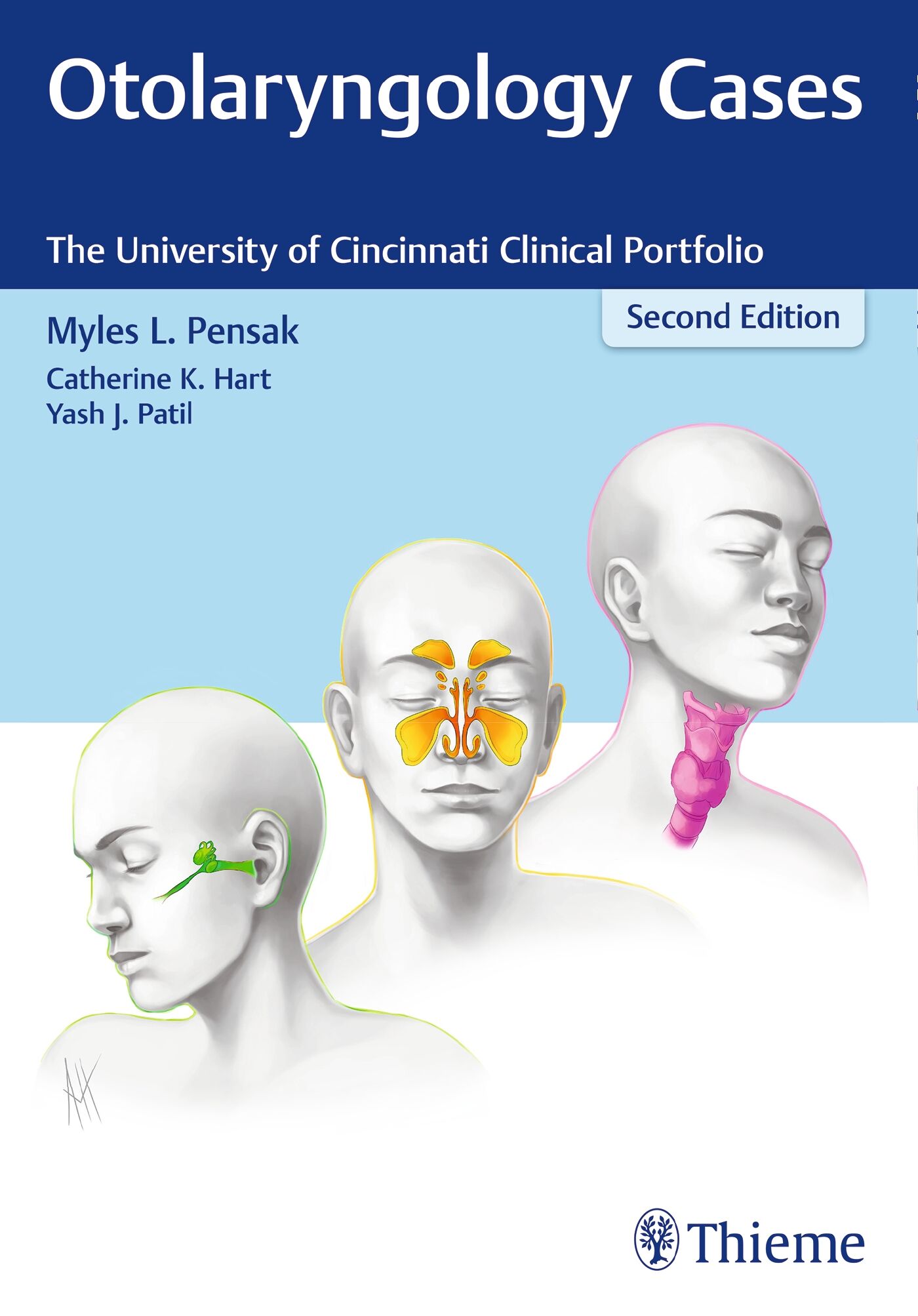The Otolaryngologist’s Role in Diagnosing Complex Head and Neck Conditions
The Otolaryngologist’s Role in Diagnosing Complex Head and Neck Conditions
Blog Article
Discovering the Field of Otolaryngology: What to Anticipate When You Consult an ENT
Otolaryngology, typically described as ENT, encompasses the diagnosis and therapy of ear, throat, and nose disorders. For those experiencing relevant problems, getting in touch with an ENT expert can supply clearness and relief. Comprehending what to anticipate during such assessments is necessary for reliable interaction and treatment. This review will certainly detail key elements of the ENT experience, including common factors for sees and the procedures involved in diagnosis and treatment.

Comprehending Otolaryngology: An Introduction
Otolaryngology, frequently referred to as ENT (Throat, ear, and nose) medication, is a specific branch of medication that focuses on the medical diagnosis and treatment of problems influencing these vital locations of the body. This field includes a variety of problems, including those pertaining to hearing, equilibrium, respiratory system feature, and speech. Otolaryngologists are trained to manage both medical and surgical treatments, making use of innovative strategies and technologies. Their experience extends past typical disorders, addressing concerns such as allergies, sinus infections, and hearing loss. In addition, they play an important function in the monitoring of head and neck cancers, providing detailed treatment customized to private patient needs. In general, otolaryngology remains necessary for maintaining health and wellness and quality of life in damaged individuals.
Usual Factors to See an ENT Professional
Lots of individuals look for the competence of an ENT expert for a selection of reasons, mirroring the diverse nature of problems that influence the nose, ear, and throat. Typical problems consist of persistent sinusitis, which frequently brings about persistent nasal blockage and face discomfort. Allergic reactions and their associated signs, such as sneezing and itching, likewise prompt sees to these professionals (Sinus). Hearing loss, whether sudden or steady, is another considerable factor for examination. On top of that, individuals might look for assessment for throat conditions, including consistent hoarseness or swallowing difficulties. Rest apnea, characterized by disturbed breathing throughout rest, is often addressed by ENT specialists too. Each of these conditions highlights the relevance of specialized treatment in taking care of complex ENT-related health concerns
Planning for Your ENT Appointment
When getting ready for an ENT consultation, it is vital to gather relevant details and take into consideration any details problems. Patients need to assemble a detailed case history, including previous ear, nose, or throat concerns, surgical treatments, and present medications. Recording signs and symptoms-- such as intensity, regularity, and period-- can supply useful understandings for the ENT specialist. In addition, individuals need to prepare a checklist of concerns they want to ask, ensuring that all worries are resolved during the browse through. Bringing along any pertinent medical documents or test results can additionally assist the ENT in comprehending the person's condition. Lastly, people need to verify their appointment details, consisting of date, time, and place, to minimize any type of final confusion. Appropriate preparation can enhance the effectiveness of the consultation and lead to much better results.
What to Anticipate During the Consultation
As the consultation starts, the client can expect to engage in a detailed conversation with the ENT professional concerning their signs and symptoms and case history. The specialist will ask about the period, frequency, and extent of signs such as hearing loss, nasal blockage, or aching throat. Furthermore, the client's previous clinical conditions, medications, and any kind of pertinent family background will certainly be examined, aiding the professional in forming a total understanding of the client's health. The ENT might also ask regarding way of life elements, such as exposure to irritants or allergens. This open discussion develops a structure for the assessment, making certain that the client's problems are resolved and setting the phase for any kind of required evaluations or referrals for treatment.
Analysis Examinations and Treatments in Otolaryngology
A variety of analysis tests and treatments are essential in otolaryngology to properly examine and diagnose conditions influencing the ear, throat, and nose. Usual examinations include audiometry, which gauges hearing feature, and tympanometry, assessing center ear pressure. Nasal endoscopy permits visualization of the nasal flows and sinuses, while laryngoscopy examines the throat and singing cables. Imaging strategies, such as CT scans and MRIs, give thorough sights of head and neck structures. Allergy testing may also be performed to identify triggers for sinus or respiratory concerns. These diagnostic devices enable ENT experts to create an extensive understanding of individuals' problems, guaranteeing tailored and efficient monitoring plans. Proper diagnosis is essential for successful therapy outcomes in otolaryngology.
Therapy Alternatives Supplied by ENT Specialists
ENT specialists supply a variety of treatment alternatives tailored to attend to particular conditions affecting the throat, nose, and ear. These therapies range from conservative techniques, such as medicine and way of life alterations, to more invasive procedures. Allergies might be managed with antihistamines or immunotherapy, while persistent sinus problems could call for nasal corticosteroids or sinus surgery. For hearing loss, ENT specialists often recommend listening devices or medical treatments like cochlear implants. In instances of throat conditions, alternatives can include speech therapy or operations to remove obstructions. Additionally, they may provide support for taking care of rest apnea, consisting of the use of CPAP devices or surgical interventions. Overall, the goal is to enhance clients' top quality of life via customized treatment and effective therapy techniques.
When to Look For Follow-Up Care With an ENT
Acknowledging when to look for follow-up treatment with an ENT specialist is vital for managing continuous signs or problems connected to nose, ear, and throat problems. Individuals need to take into consideration scheduling a follow-up visit if signs and symptoms persist in spite of initial treatment, such as chronic ear discomfort, nasal congestion, or throat discomfort. Modifications in check here hearing, balance problems, or unusual nasal discharge may also warrant more evaluation. Furthermore, if a patient experiences side effects from suggested medicines or has actually undergone a procedure, follow-up care is necessary to monitor healing and address any issues. Prompt assessments can assure efficient administration of problems, avoid potential issues, and give tranquility of mind concerning one's health. Looking for follow-up treatment advertises proactive wellness monitoring in otolaryngology.
Regularly Asked Concerns

What Qualifications Should I Search for in an ENT Specialist?
When looking for an ENT expert, one need to look for board certification, appropriate experience, and solid client testimonials. In addition, reliable communication skills and a thoughtful technique can significantly enhance the total therapy experience.
Just how Do I Select the Right ENT for My Requirements?
Choosing the right ENT professional entails assessing their credentials, experience, and patient reviews (Hearing). It is necessary to consider their communication design and method to treatment, ensuring they align with the person's particular health demands and choices
Exist Any Dangers Related To ENT Procedures?
The threats connected with ENT treatments may consist of infection, blood loss, anesthesia issues, and possible damage to bordering structures. People need to review these risks with their physician to understand private worries and assurance informed decisions.
Just How Can I Take Care Of Anxiousness Before My ENT Appointment?
To manage stress and anxiety before an appointment, people can exercise deep breathing workouts, visualize positive outcomes, prepare concerns in advance, and seek assistance from pals or household, fostering a sense of reassurance and peace.
What Should I Do if I Experience Adverse Effects From Therapy?
If adverse effects from treatment take place, the individual must promptly report them to their health care provider. Modifications to therapy or added treatments might be essential to guarantee safety and security and efficiency in handling their condition - ENT surgery. As the appointment starts, the patient can anticipate to involve in a comprehensive discussion with the ENT expert regarding their signs and symptoms and medical background. These diagnostic tools allow ENT specialists to develop a thorough understanding of patients' conditions, making sure customized and effective management strategies. ENT professionals provide a selection of treatment alternatives customized to resolve certain problems influencing the nose, ear, and throat. When looking for an ENT expert, one ought to look for board qualification, appropriate experience, and strong individual testimonials. Choosing the best ENT specialist includes examining their certifications, experience, and person evaluations
Report this page